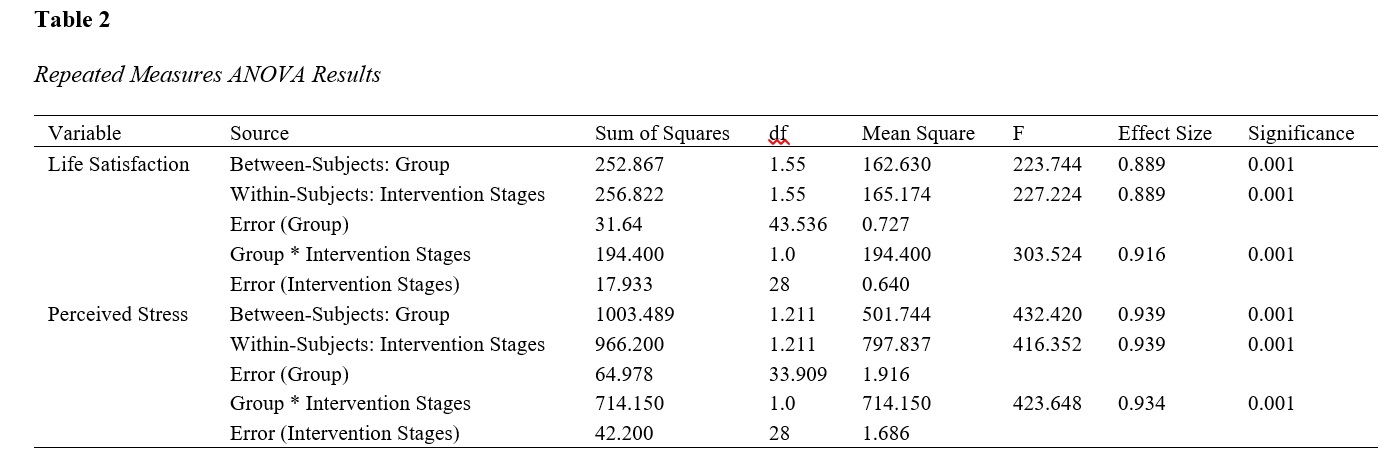Effectiveness of Mindfulness-Based Strengths Practice on Psychological Life Satisfaction and Perceived Stress in Gifted Students
Keywords:
Perceived Stress, Mindfulness, Students, Intelligence, Life SatisfactionAbstract
The aim of this study was to determine the effectiveness of mindfulness-based strengths training on life satisfaction and perceived stress among gifted students. The research method was applied, quasi-experimental, with a pretest-posttest and follow-up design in two experimental and control groups. The statistical population of this study included female students in the first and second grades of Farzanegan high school for gifted students in Mazandaran, and the sample size was determined to be 30 students through G*Power software. Participants completed the Satisfaction with Life Scale (SWLS) by Diener et al. (1985) and the Perceived Stress Scale (PSS) by Cohen et al. (1983). The training group underwent eight weekly sessions of 90 minutes each, receiving mindfulness-based strengths training according to Niemiec's (2014) protocol, while the control group received no training. Data analysis was performed using mixed repeated measures ANOVA with SPSS-27 software. The results showed that mindfulness-based strengths training significantly increased life satisfaction and decreased perceived stress among gifted students (p < 0.001). Based on these findings, it can be concluded that mindfulness-based strengths training is effective in improving life satisfaction and reducing perceived stress in gifted students.
Downloads

Downloads
Additional Files
Published
Issue
Section
License
Copyright (c) 2025 Fatemeh Kamran (Author); Ghodratollah Abbasi (Corresponding Author); Ramazan Hassanzadeh (Author)

This work is licensed under a Creative Commons Attribution-NonCommercial 4.0 International License.














